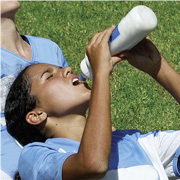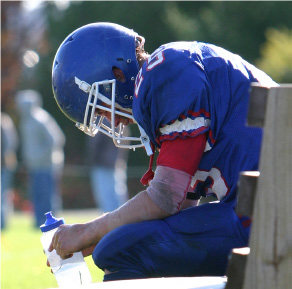10 Tips to Keep Your Kids Safe While Playing Sports
Sharing is caring!

Did you know that more than 3.5 million children ages 14 and under get hurt playing sports or participating in recreational activities each year? Additionally, high school athletes account for nearly 2 million injuries and 500,000 doctor visits each year!
April is National Youth Sports Safety Month, so this is an excellent time to learn a few simple tips to keep children safe while playing their favorite sports!
10 Sports Safety Tips for Parent, Coaches, and Athletes:
- Before playing organized sports, parents should make sure that their children receive a pre-participation physical exam, or PPE, performed by a doctor, nurse practitioner, or qualified physician.
- When there is an emergency, parents should provide their children’s coaches with important information (phone numbers, doctor’s information, allergy information, etc.).
- Parents should send athletes to practice and games with a water bottle and encourage them to stay well hydrated by drinking plenty of water before, during, and after play.
- Parents should attend a sports safety clinic in their area, such as ones held by Safe Kids across the United States. These clinics provide coaches and parents with ways to keep young athletes healthy and injury free throughout their sporting careers.
- Coaches should set aside time before every practice and game for athletes to warm-up properly.
- As a coach, it is important to establish safety guidelines that athletes and parents can follow during every practice and game (creating hydration breaks, encouraging players to sit out if injured, resting if not feeling well and facilitating a proper warm-up).
- Athletes should start with about 10 minutes of jogging and stretch all major muscle groups, holding for 20 to 30 seconds.
- It is important for athletes to use appropriate and properly-fitted sports equipment to prevent or reduce the severity of injuries.
- An athlete with a suspected concussion must be removed from play until evaluated and cleared by a medical professional.
- To help avoid overuse injury, athletes should take breaks during practices and games.

This post was prepared by Safe Kids Georgia Intern, Zoe Eberhardt
Tagged with: sports safety
Join us on Facebook


